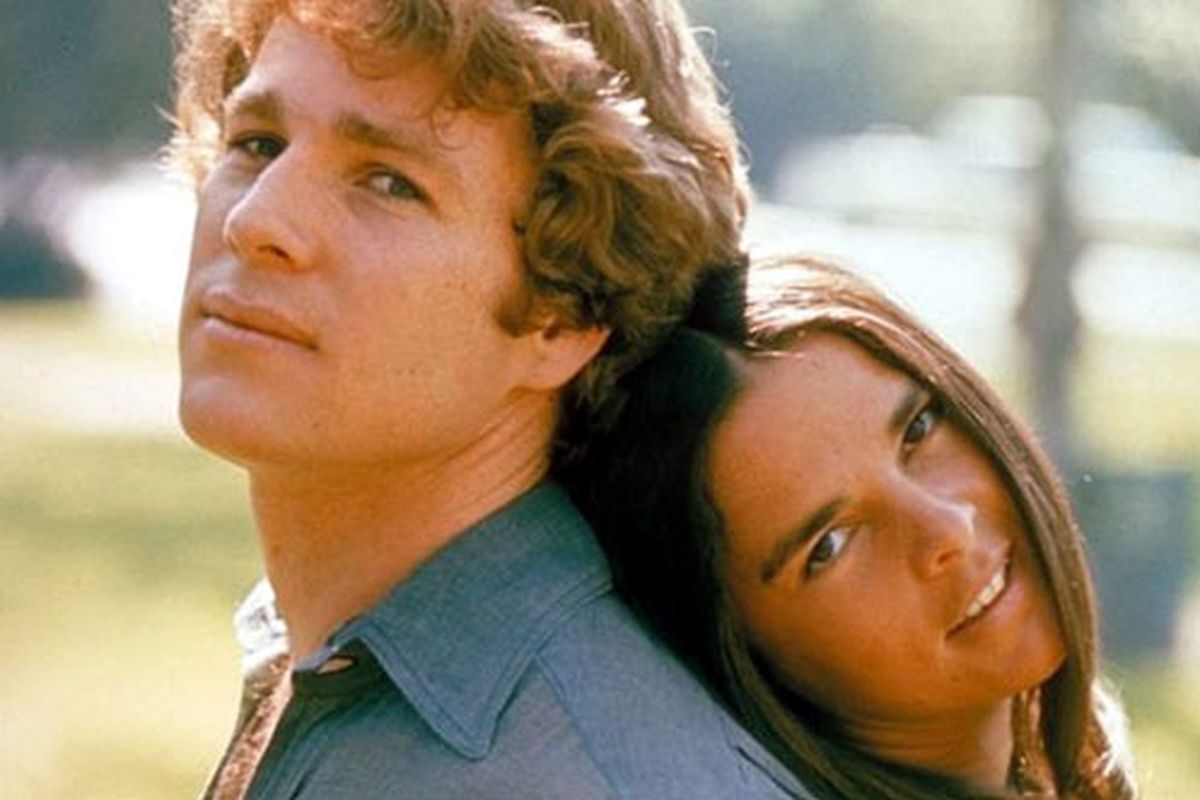Cancer
Will Reiser, Seth Rogen join forces to make a ‘feel-better’ comedy

“He became much less annoying,” Rogen says.
“It’s true,” Reiser agrees. “And it made Seth less of a jerk.”
That abusive/affectionate back-and-forth is part of the brickwork of “50/50,” the “cancer comedy” arriving in theaters today, written by Reiser, produced by and starring Rogen and with Joseph Gordon-Levitt as the Reiser stand-in, Adam.
A worrisome sort, Adam is a young man who jogs, works at a public radio station in Seattle and worries a lot about the small stuff – at least until he gets sick.
“I don’t smoke, I don’t drink and I recycle,” he says, not quite understanding how he ever got the tumor which – as the title implies – he has only even odds of beating.
Cancer in the movies has not, traditionally, been a mechanism of feel-good comedy – or, as “50/50” advertises itself, a “feel-better” comedy.
One thinks of Debra Winger in “Terms of Endearment,” Susan Sarandon in “Stepmom,” James Caan in “Brian’s Song” and – flashback – Ali MacGraw in “Love Story.”
The closest cancer comes to being funny was via Jack Nicholson and Morgan Freeman in “The Bucket List.”
Rogen says he and Reiser were writing for Sacha Baron Cohen’s former cable program, “The Ali G Show,” when Reiser was diagnosed with cancer in his back.
“We had become good friends, being the youngest writers, I guess, and we joked about it all the time,” Rogen says.
“And we’d also talk about what kind of movie this would make. Most movies that deal with cancer are sad and depressing, which is not what we experienced.”
Adds Reiser, who’s been cancer-free for six years: “We were 24, 25, and we didn’t really know how to deal with it. We were comedy writers, so the way we dealt with it was to make jokes.
“We sort of talked about how absurd it was, how weird the whole thing was; we definitely found a lot of humor in the situation. That’s not to say it wasn’t a difficult time. It was just our lack of ability to talk about anything on an emotional level.”
“50/50” also co-stars Anjelica Huston, as Adam’s overprotective and panicky mother; Anna Kendrick (“Up in the Air”) as Adam’s young and inexperienced cancer counselor; and Dallas Bryce Howard as Adam’s faithless girlfriend, whom Rogen’s character, Kyle, takes an almost gleeful satisfaction in calling on the carpet.
“Those were my favorite scenes,” Rogen says.
The director is Jonathan Levine, whose films include “All the Boys Love Mandy Lane,” “The Wackness” and now “50/50.” It’s quite a resume: a slasher film, a drug-themed indie and now a cancer comedy.
“The three tried-and-true genres,” Levine says with a laugh. “But partly what I liked about it is, it’s not a genre and what I like to do are things you sort of haven’t seen before.
“It’s kind of a scary thing to do, but Will wrote this amazing script, and I always had a lot of faith in it, and I really wanted to work with Seth and Evan (Goldberg, the film’s producer). Once we started making it, that faith grew exponentially each day, especially watching Joe and what he was doing.”
Gordon-Levitt says he never felt any reservations about playing Adam, even though the character’s inspiration – Reiser himself – was on the set every day.
“No, it was really nothing but helpful because having him there allowed me to push it and take risks and feel confident in my choices,” Gordon-Levitt says. “I would tell him when something didn’t feel right, and he would tell me when it didn’t seem right.”
And he says the authenticity of the story has moved audiences – at least the audiences in Toronto, where “50/50” premiered at the recent film festival.
“People stood up,” Gordon-Levitt says. “It’s a real crowd-pleaser, and I think that stems from it being honest. It’s not trying to just make you laugh or just be sentimental. It’s this guy’s honest account of what he went through.”
Reiser emphasizes that the movie is not, strictly speaking, autobiography.
“I fictionalized my experience,” he says. “I drew upon what happened to me and stories people shared with me. I didn’t want it to be autobiographical. I never wanted anyone to feel it was my story.
“It’s weird,” adds Levine, who’s gone through the cancer experience with two family members. “Until you’re sort of indoctrinated into this world, you’re not aware how pervasive it is.
“And once you are, you realize that everyone has a personal experience – someone close to them or themselves. … So it was nice we’re able to let people who’ve gone through these situations know that they’re not alone.”